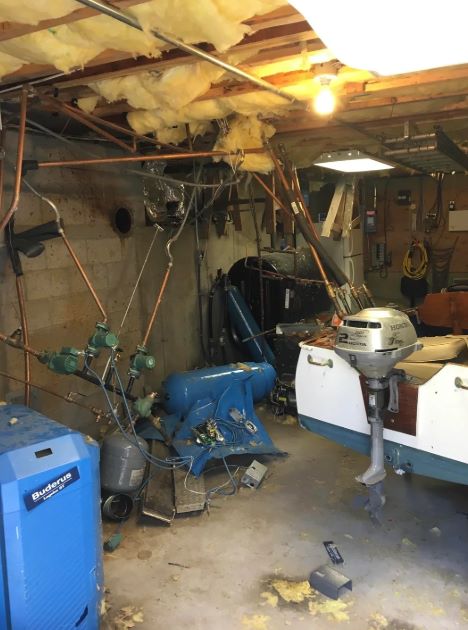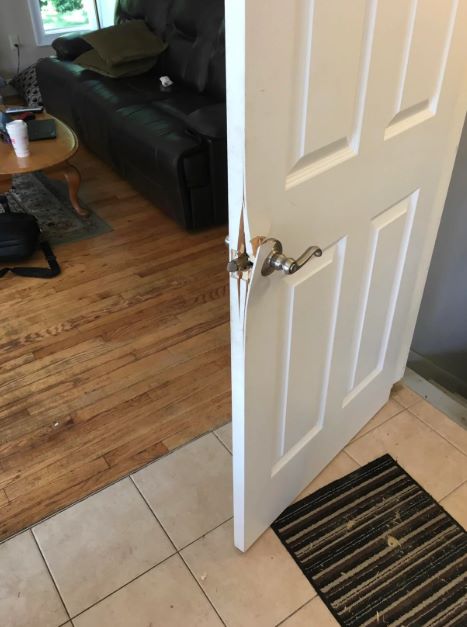An HVAC technician recently shared the aftermath of a dangerous boiler explosion on Reddit, offering a stark reminder of the risks posed by malfunctioning gas-based heating systems. According to the technician, the explosion propelled the boiler a staggering eight feet from its original location.
The tech explained someone might have mistakenly put gas into the oil tank. Others noted it might have been caused by overheating due to failed pressure relief valves.
"The explosion blew the basement door right open," the tech wrote, posting a picture of the door splintered at the latch.


In a follow-up comment, the tech revealed the homeowner was in the basement when the explosion occurred. While the individual was struck by debris, they were fortunate to escape with no life-threatening injuries.
💡Save thousands with a heat pump
A heat pump can save you thousands of dollars in heating and cooling costs — but first you have to find the right installer at the right price.
Use EnergySage's free tool today to find local options, compare prices, and see how much you can save.

The Cool Down may receive a commission on signups made through links on this page, but we only promote partners we vet and believe in. For more cool tips like this one, check out our solutions list here.
"He's lucky to be alive," one commenter wrote.
This incident highlights the dangers of malfunctioning gas boilers — and underscores why many homeowners are transitioning to heat pumps as a safer, more sustainable alternative for heating and cooling their homes.
Unlike gas boilers, heat pumps do not rely on dirty fuel sources to operate, eliminating the risk of gas leaks and explosions caused by faulty equipment. Instead, heat pumps collect heat from the air, water, or ground outside your home and concentrate it for use inside, according to the Department of Energy. Essentially, heat pumps work like an air conditioner or refrigerator but with a reversing valve that allows them to heat and cool, per National Grid.
Heat pumps are not only safer but also more energy-efficient, less polluting, and more economical than traditional HVAC systems. According to Carbon Switch, heat pumps can save homeowners between $100 and $1,000 annually on energy bills, depending on home location and size.
While heat pumps can be costly to install, the government wants to help. Through the Inflation Reduction Act, eligible homeowners installing a heat pump can have up to $8,000 of the price reimbursed through rebates and tax credits.
🗣️ Which of these factors would most effectively motivate you to buy a heat pump?
🔘 Lower energy bills 💰
🔘 Better temperature control 🌡️
🔘 Helping the planet 🌎
🔘 I'd never buy a heat pump 🚫
🗳️ Click your choice to see results and speak your mind
If you're not sure whether a heat pump is right for you and your home, EnergySage can help. The heat pump marketplace will provide cost estimates, answer common questions, and help you connect with local installation companies.
But rebates for climate-minded home updates may not be available forever. President-elect Donald Trump has stated he hopes to eliminate large portions of the IRA, which could cut back on or entirely eliminate government incentives for home renovations. Major changes to the IRA, however, would ultimately require an act of Congress.
With such an uncertain future, taking advantage of IRA incentives sooner rather than later could potentially save you thousands — and ensure the safety of your home.
Join our free newsletter for easy tips to save more and waste less, and don't miss this cool list of easy ways to help yourself while helping the planet.









